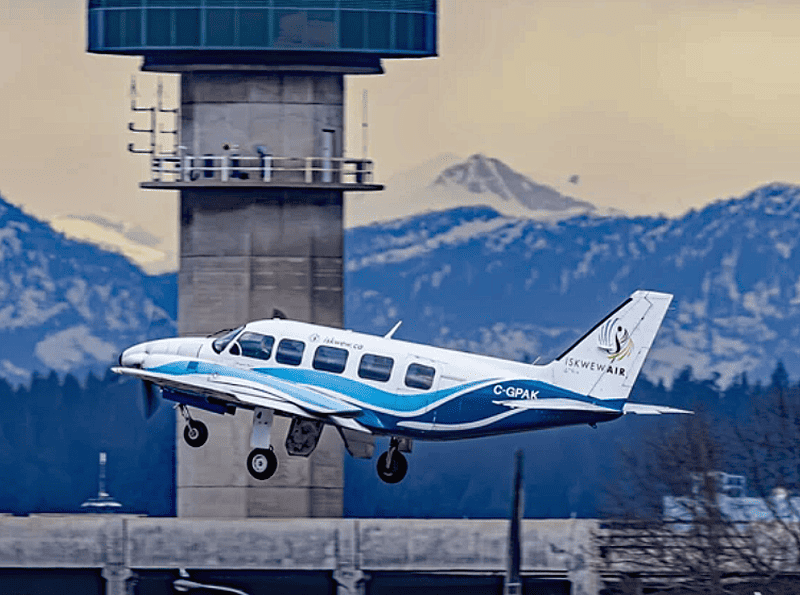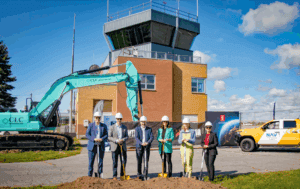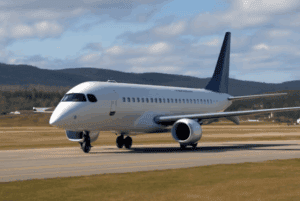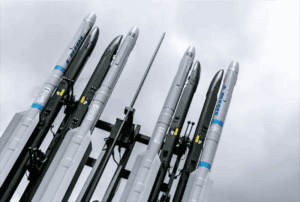More than 200 flights were delayed and 23 cancelled at YVR over the Canada Day long weekend, with no end in sight to the staffing problems
Long waits, missed connections and widespread frustration disrupted the Canada Day long weekend at Vancouver International Airport, where more than 200 flights were delayed due to an ongoing shortage of air traffic controllers at Nav Canada, the private company responsible for managing the country’s airspace.
“Nav Canada let us know at about 1:30 p.m. on Saturday that this was about to happen at 3 p.m.,” said Stephen Smart, a spokesperson for YVR.
The staffing shortfall at Nav Canada reduced the number of flights that could be handled in the area around YVR and cut flight volumes to maintain safety. Between Saturday and Sunday, the airport experienced 219 flight delays and 23 cancellations. While flight operations at YVR were mostly back to normal by Monday, both the airport and airline officials say the weekend’s disruptions exposed a chronic staffing problem that has worsened significantly since April, with no end in sight.
“It’s been during peak travel periods that (YVR) has seen these staffing disruptions hit the hardest,” explained Smart.To help ease the delays, U.S. and Canada passenger screeners agreed to extend their operations until 2 a.m. Sunday to process passengers. Food and beverage outlets stayed open late, and additional YVR staff were deployed to assist travellers.
“Anytime you are asking employees to stay longer or businesses to stay open later, there are lots of costs associated with that,” Smart said. “It goes beyond hotel rooms for impacted passengers or crew that weren’t able to make it back for their next flight.”
The staffing shortage hits regional airports especially hard, said Smart, as they typically receive the lowest priority for available airspace. On Sunday, flights within B.C. accounted for 49 per cent of all delays at YVR, with a route to Calgary among the most affected. As summer travel ramps up, both the airport and airlines are sounding the alarm about growing flight disruptions affecting passengers and flight crews across the province. Teara Fraser, CEO of Indigenous-owned Iskwew Air, says the ongoing shortage of air traffic controllers is threatening the survival of small, local carriers like hers.
“It’s not a new problem, but it’s the worst I’ve ever seen it,” said Fraser, whose airline operates short flights between Vancouver International Airport and Qualicum Beach on Vancouver Island. “Because of a lack of awareness about the situation, airlines often get blamed for everything that goes wrong. But there’s nothing we can do.”Fraser said delays of 30 minutes to two hours are now a regular occurrence for her airline. The Canada Day long weekend was no different.“Nav Canada has warned me to expect delays like these through this summer.”
The CEO explained that since their pilots are bound by strict flight duty times, delays that exceed those limits require a new crew, creating further costs for both the company and its passengers.
“Because our flights are so short, the impact of these delays is substantial,” said Fraser. “They’ve led to cancellations, which are stressful for passengers who are counting on a seamless connecting flight.”
Tim Perry, president of the Air Line Pilots Association International Canada, says the shortage of air traffic controllers is a systemic issue the union has raised concerns about in recent years.
“Unfortunately, we’ve been commenting about this issue long before COVID,” said Perry. “Nav Canada laid off every single trainee during the pandemic, and now we’re seeing the consequences.”
Perry said there is little that can be done to alleviate the shortage this summer, and the operational fallout is affecting not only passengers but pilots as well.
“If there’s a delay for a passenger, there’s a delay for a pilot. Days get longer, and cancellations can start to cascade,” he said.
While Nav Canada acknowledged the issue, it warned that training and recruitment take time. The company says it is actively hiring and has brought on over 450 new staff since September 2023, including 230 air traffic controllers, with more than 500 trainees currently in the system. The company apologized in a statement over the weekend for the delays and said safety remains the top priority.
“Staffing progress is being made across the Canadian system, and we’re seeing encouraging signs in many areas,” the company said. “However, the path to full qualification is extensive, typically requiring 24 to 36 months of classroom instruction, simulation and on-the-job training.”
Larger airlines are also feeling the pressure
In a statement Friday, WestJet called the situation “unacceptable,” citing the essential nature of air travel for Canadians.
“These air traffic control staffing challenges frequently become the primary reason for delays throughout the WestJet network… and are being felt by guests across the country, even if they do not fly through Vancouver or British Columbia,” the airline said in a statement.
Since April, more than 300,000 WestJet passengers have experienced delays related to Nav Canada’s staffing issues. The airline said these disruptions have added “considerable costs to airlines as their operations need to recover” and caused big headaches for travellers. Because these delays are outside airlines’ control, WestJet says passengers aren’t eligible for payouts under Canada’s Air Passenger Protection Regulations.
WestJet said it supports long-term hiring and training efforts at Nav Canada, but warned that the staffing issue remains unresolved heading into peak season. Consumer advocates, however, say airlines aren’t doing enough to be upfront with travellers about the scale of the problem. Gabor Lukacs, a Vancouver-based aviation and consumer rights lawyer, believes Canadian airlines are aware of the frequent shortages, but continue to sell tickets without properly warning passengers.
“If you know that things are going wrong, airlines cannot sell those tickets in good faith,” he said. “It’s like sticking your head in the sand.”
He called it “deceptive” and “dishonest” for airlines to issue vague advisories while continuing to book flights, as if Nav Canada wasn’t chronically short-staffed.
Lukacs urged passengers to know their rights. If a flight is delayed more than three hours and the airline is responsible, he said travellers may be eligible for $400 or more in compensation.
“You can file a claim with the airline. If they say no, you can take it to the B.C. Civil Resolution Tribunal,” said Lukacs. “There’s no way to prevent this from happening as a passenger, but you can still hold airlines accountable.”
(Source: Vancouver Sun, Sarah Grochowski. Photo/PostMedia)








